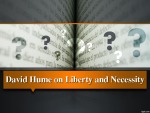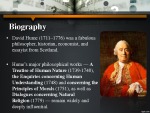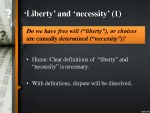Liberty And Necessity



Liberty and necessity.
Human beings have free will. For example: if a man wants to raise hand and is able to do this, it is said that he is free to raise hand. Everyone can enjoy of this kind of liberty, as long as it does not is somehow physically disturbed. And such a form of liberty does not conflict with the necessity.
If actions were not caused, and caused by the motives of the person, in what way we could consider that person is morally responsible?
Georg Wilhelm Friedrich Hegel. He contrasted the liberty and necessity, and said that liberty is only known necessity. The essential feature of the concept of liberty by him is: to be obedient to what is ideal and true means to be free, and resist to ideality means to be enslaved.
Pythagoras, believed that man is not free, if he can not curb his infirmities and give orders to himself.
Therefore, we can say, that human’s acts are caused by their own willings and necessity, and these are doing them morally responsible for their actions. Since we are morally responsible, society is more stable and safer.
- Philosophy Presentations
- MS PowerPoint 1987 KB
- 2016 m.
- English
- 26 pages (870 words)
- University
- Shudamaka

















